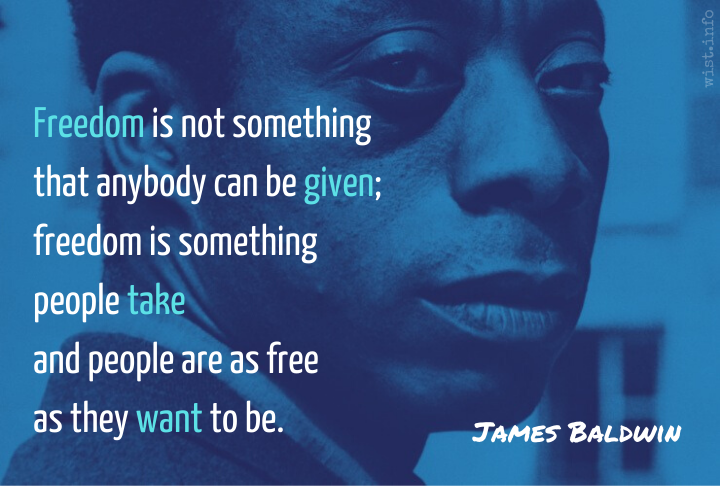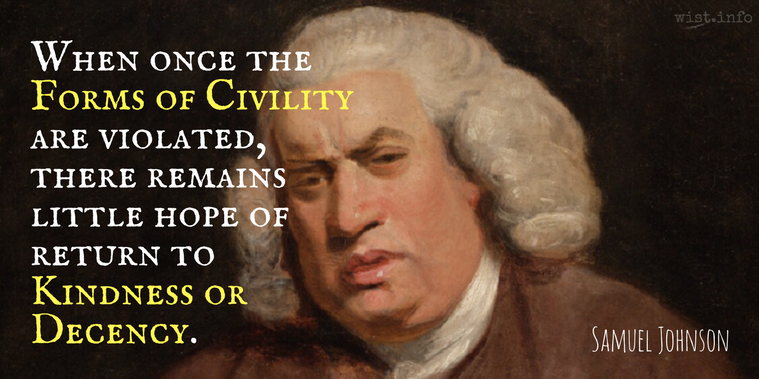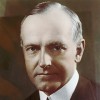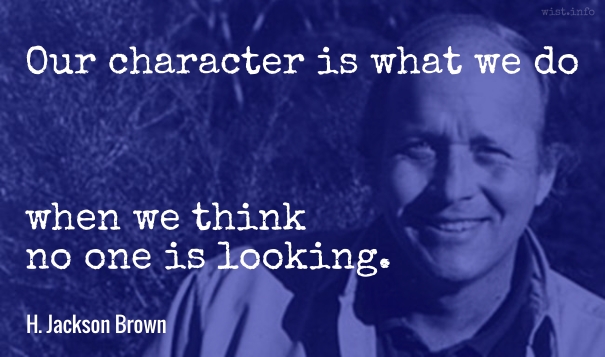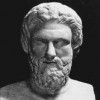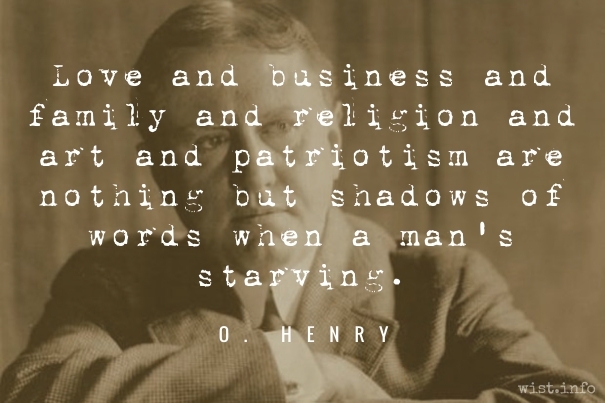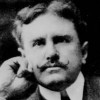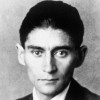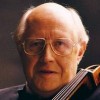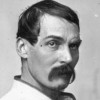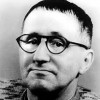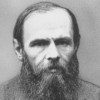Hence the lust for money first, then for power, grew upon them; these were, I may say, the root of all evils. For avarice destroyed honour, integrity, and all the other noble qualities; taught in their place insolence, cruelty, to neglect the gods, to set a price on everything. Ambition drove many men to become false; to have one thought locked in the breast, another ready on the tongue; to value friendships and enmities not on their merits but by the standard of self-interest, and to show a good front rather than a good heart. At first these vices grew slowly, from time to time they were punished; finally, when the disease had spread like a deadly plague, the state was changed and a government second to none in equity and excellence became cruel and intolerable.
[Igitur primo imperi, deinde pecuniae cupido crevit: ea quasi materies omnium malorum fuere. Namque avaritia fidem, probitatem ceterasque artis bonas subvortit; pro his superbiam, crudelitatem, deos neglegere, omnia venalia habere edocuit. Ambitio multos mortalis falsos fieri subegit, aliud clausum in pectore, aliud in lingua promptum habere, amicitias inimicitiasque non ex re, sed ex commodo aestumare magisque voltum quam ingenium bonum habere. Haec primo paulatim crescere, interdum vindicari; post, ubi contagio quasi pestilentia invasit, civitas inmutata, imperium ex iustissumo atque optumo crudele intolerandumque factum.]
Sallust (c. 86-35 BC) Roman historian and politician [Gaius Sallustius Crispus]
Bellum Catilinae [The War of Catiline; The Conspiracy of Catiline], ch. 10, sent. 3-6 [tr. Rolfe (1931)]
(Source)
Discussing the corruption of Rome in the years after the final defeat of Carthage.
Alt. trans.:
"A love of money, and a lust for power, took possession of every mind. These hateful passions were the source of innumerable evils. Good faith, integrity, and every virtuous principle, gave way to avarice; and in the room of moral honesty, pride, cruelty, and contempt of the gods succeeded. Corruption and venality were introduced; and everything had its price. Such were the effects of avarice. Ambition was followed by an equal train of evils; it taught men to be false and deceitful; to think one thing, and to say another; to make friendship or enmity a mere traffic for private advantage, and to set the features to a semblance of virtue, while malignity lay lurking in the heart. But at first these vices sapped their way by slow degrees, and were often checked in their progress; but spreading at length like an epidemic contagious, morals and the liberal arts went to ruin; and the government, which was before a model of justice, became the most profligate and oppressive." [tr. Murphy (1807)]
"First a love of money possessed their minds; then a passion for power; and these were the seeds of all the evils that followed. For avarice rooted out faith, probity, and every worthy principle; and, in their stead, substituted insolence, inhumanity, contempt of the gods, and a mercenary spirit. Ambition obliged many to be deceitful; to belie with their tongues the sentiments of their hearts; to value friendship and enmity, not according to their real worth, but as they conduced to interest; and to have a specious countenance, rather than an honest heart. These corruptions at first grew by degrees, and were sometimes checked by correction. At last, the infection spreading like a plague, the state was entirely changed, and the government, from being the most righteous and equitable, became cruel and insupportable." [tr. Rose (1831)]
"Therefore at first the love of money, then that of power increased. These things became as it were the foundation of all evils. For avarice overthrew faith, honesty, and all the other good acts; and instead of them it taught men pride, cruelty, to neglect the gods, and to consider everything venal. Ambition forced many men to become false, to have one thing hidden in their hearts, another ready on their tongue, to value friendships and enmities, not accordingly to reality, but interest, and rather to have a good appearance than a good disposition. These things at first began to increase by degrees, sometimes to be punished. Afterwards when the infection swept on like a pestilence, the state was changed, the government from the most just and best, became cruel and intolerable." [Source (1841)]
"At first the love of money, and then that of power, began to prevail, and these became, as it were, the sources of every evil. For avarice subverted honesty, integrity, and other honorable principles, and, in their stead, inculcated pride, inhumanity, contempt of religion, and general venality. Ambition prompted many to become deceitful; to keep one thing concealed in the breast, and another ready on the tongue; to estimate friendships and enmities, not by their worth, but according to interest; and to carry rather a specious countenance than an honest heart. These vices at first advanced but slowly, and were sometimes restrained by correction; but afterwards, when their infection had spread like a pestilence, the state was entirely changed, and the government, from being the most equitable and praiseworthy, became rapacious and insupportable." [tr. Watson (1867)]
"At first the lust of money increased, then that of power, and these, it may be said, were the sources of every evil. Avarice subverted loyalty, uprightness, and every other good quality, and in their stead taught men to be proud and cruel, to neglect the gods, and to hold all things venal. Ambition compelled many to become deceitful; they had one thought buried in their breast, another ready on their tongue; their friendships and enmities they valued not at their real worth, but at the advantage they could bring, and they maintained the look rather than the nature of honest men. These evils at first grew gradually, and were occasionally punished; later, when the contagion advanced like some plague, the state was revolutionized, and the government, from being one of the justest and best, became cruel and unbearable." [tr. Pollard (1882)]
"Hence it was the desire for money first of all, and then for empire, which grew; and these factors were the kindling (so to speak) of every wickedness. For avarice undermined trust, probity, and all other good qualities; instead it taught men haughtiness, cruelty, to neglect the gods, to regard everything as for sale. Ambition reduced many mortals to becoming false, having one sentiment shut away in the heart and another ready on the tongue, assessing friendships and antagonisms in terms not of reality but of advantage, and having a good demeanour rather than a good disposition. At first these things grew gradually; sometimes they were punished; but after, when the contamination had attacked like a plague, the community changed and the exercise of command, from being the best and most just, became cruel and intolerable." [tr. Woodman (2007)]
"At first the desire of power, then the desire of money increased; these were effectively the material of all evils, because avarice overturned faith, probity, and all other noble arts; in their place, it taught men to be arrogant and cruel, to neglect the gods, and to consider all things for sale. Ambition compelled many men to become liars; to hold one thing hidden in the heart, and the opposite thing at the tip of one’s tongue; to judge friends and enemies not in objective terms, but by reference to personal gain; and finally, to make a good appearance rather than to have a good mind. As these vices first began to increase, they were occasionally punished; but afterward, once the contagion had spread like a plague, the state as a whole was altered, and the government, once the noblest and most just, was made cruel and intolerable." [tr. @sententiq (2017)]
That it is the nature of ambition, to make men liars and cheaters; to hide the truth in their breasts, and show, like jugglers, another thing in their mouths; to cut all friendships and enmities to the measure of their own interest, and to make a good countenance without the help of good will. [tr. Cowley? (17th C)]
Quotations about:
morals
Note not all quotations have been tagged, so Search may find additional quotes on this topic.
Let me point out to you that freedom is not something that anybody can be given; freedom is something people take and people are as free as they want to be. One hasn’t got to have an enormous military in order to be unfree when it’s simpler to be asleep, when it’s simpler to be apathetic, when it’s simpler, in fact, not to want to be free, to think that something else is more important.
James Baldwin (1924-1987) American novelist, playwright, activist
“Notes for a Hypothetical Novel,” speech, San Francisco College (22 Oct 1960)
(Source)
Later published in Nobody Knows My Name (1961).
The trail of the serpent reaches into all the lucrative professions and practices of man, Each has its own wrongs. Each finds a tender and very intelligent conscience a disqualification for success. Each requires of the practitioner a certain shutting of the eyes, a certain dapperness and compliance, an acceptance of customs, a sequestration from the sentiments of generosity and love, a compromise of private opinion and lofty integrity.
Ralph Waldo Emerson (1803-1882) American essayist, lecturer, poet
“Man the Reformer,” lecture, Boston (1841-01-25)
(Source)
When once the forms of civility are violated, there remains little hope of return to kindness or decency.
Samuel Johnson (1709-1784) English writer, lexicographer, critic
The Rambler, #50 (25 Sep 1750)
(Source)
Couched as a letter to the paper from a woman.
We do not need more intellectual power, we need more moral power. We do not need more knowledge, we need more character. We do not need more government, we need more culture. We do not need more law, we need more religion. We do not need more of the things that are seen, we need more of the things that are unseen. If the foundation be firm, the foundation will stand.
Times change. The vices of your age are stylish today.
Aristophanes (c. 450-c. 388 BC) Athenian comedic playwright
The Clouds, l. 914 (c. 423 BC) [tr. Arrowsmith (1962)]
This phrase comes from a single translation, by William Arrowsmith (1962), of Aristophanes, The Clouds, l. 914. It is the only translation that includes anything like that:
[909] Philosophy: Why, you Precocious Pederast! You Palpable Pervert!
[910] Sophistry: Pelt me with roses!
[910] Philosophy: You Toadstool! O Cesspool!
[911] Sophistry: Wreath my hairs with lilies!
[911] Philosophy: Why, you Parricide!
[912] Sophistry: Shower me with gold! Look, don't you see I welcome your abuse?
[913] Philosophy: Welcome it, monster? In my day we would have cringed with shame.
[914] Sophistry: Whereas now we're flattered. Times change. The vices of your age are stylish today.
Compare to Hickey (1853):[909] Just Cause: You are debauched and shameless.
[910] Unjust Cause: You have spoken roses of me.
[910] Just Cause: And a dirty lickspittle.
[911] Unjust Cause: You crown me with lilies.
[911] Just Cause: And a parricide.
[912] Unjust Cause: You don't know that you are sprinkling me with gold.
[913] Just Cause: Certainly not so formerly, but with lead.
[914] Unjust Cause: But now this is an ornament to me.
What I particularly admire in him is the firm stand he has taken, not only against the oppressors of his countrymen, but also against those opportunists who are always ready to compromise with the Devil. He perceives very clearly that the world is in greater peril from those who tolerate or encourage evil than from those who actually commit it.
[Was ich aber an ihm besonders bewundere ist seine charaktervolle Haltung nicht nur gegen die Unterdrücker seines Volkes, sondern auch gegen alle diejenigen Opportunisten, die immer bereit sind, mit dem Teufel zu paktieren. Er hat klar erkannt, dass die Welt mehr bedroht ist durch die, welche das Uebel dulden oder ihm Vorschub leisten, als durch die Uebeltäter selbst.]
Albert Einstein (1879-1955) German-American physicist
In Josep Maria Corredor, Conversations avec Pablo Casals [Conversations with Casals], Preface (1955) [tr. Mangeot (1956)]
(Source)
The last part of the last sentence here is most frequently quoted. The text is from a letter Einstein wrote to Corredor about Pablo Casals, the Spanish cellist (30 Mar 1953), of which part was included in the Preface. The book of interviews with Casals was originally published in French, and used this translation to that language:
Ce que j’admire cependant particulièrement en lui, c’est sa ferme attitude non seulement à l’endroit des oppresseurs de son peuple, mais également à l’endroit des opportunistes toujours prêts à pactiser avec le diable. Il a su comprendre avec beaucoup de clairvoyance que le monde court un plus grand danger de la part de ceux qui tolèrent le mal ou l’encouragent que de la part de ceux-là mêmes qui le commettent.
Variants / paraphrases:More discussion and background of this quotation:
- "The world is a dangerous place, not because of those who do evil, but because of those who look on and do nothing."
- "The world is too dangerous to live in, not because of people’s evil deeds but because of those who sit and let it happen."
- "The world is a dangerous place not because there are so many evil people in it, but because there are so many good ones willing to sit back and let evil happen."
- "The world is not dangerous because of those who do harm. It’s dangerous because of those who watch and do nothing."
- "The world will not be destroyed by those who do evil, but by those who watch them without doing anything."
- The World Is in Greater Peril from Those Who Tolerate or Encourage Evil Than from Those Who Actually Commit It – Quote Investigator.
- ZITATFORSCHUNG: "Die Welt wird nicht bedroht von den Menschen, die böse sind, sondern von denen, die das Böse zulassen." Albert Einstein (angeblich).
- Juttas Zitateblog: Die Welt wird nicht bedroht von den Menschen, die böse sind, sondern von denen, die das Böse zulassen.
First Shakespeare sonnets seem meaningless; first Bach fugues, a bore; first differential equations, sheer torture. But training changes the nature of our spiritual experiences. In due course, contact with an obscurely beautiful poem, an elaborate piece of counterpoint or of mathematical reasoning, causes us to feel direct intuitions of beauty and significance. It is the same in the moral world.
Christianity has probably the most flexible morals of any religion, because Jesus left no code of law behind him like Moses or Muhammad, and his moral precepts are so different from those of ordinary life that no society has ever made any serious attempt to carry them out, such as was possible in the case of Israel and Islam. But every Christian church has tried to impose a code of morals of some kind for which it has claimed divine sanction. As these codes have always been opposed to those of the gospels a loophole has been left for moral progress such as hardly exists in other religions. This is no doubt an argument for Christianity as against other religions, but not as against none at all, or as against a religion which will frankly admit that its mythology and morals are provisional. That is the only sort of religion that would satisfy the scientific mind, and it is very doubtful whether it could properly be called a religion at all.
J.B.S. Haldane (1892-1964) English geneticist [John Burden Sanderson Haldane]
“Daedalus, or Science and the Future,” speech, Cambridge (24 Feb 1923)
(Source)
The greatest achievement in my life in terms of morality is that I can apologize to someone I have wronged. I can bow my head and ask for forgiveness. I think everyone should learn to do this, everyone should realize that, far from humiliating, it elevates the soul.
The virtues of society are the vices of the saint. The terror of reform is the discovery that we must cast away our virtues, or what we have always esteemed such, into the same pit that has consumed our grosser vices.
Ralph Waldo Emerson (1803-1882) American essayist, lecturer, poet
“Circles,” Essays: First Series (1841)
(Source)
Conscience is thoroughly well-bred and soon leaves off talking to those who do not wish to hear it.
Samuel Butler (1835-1902) English novelist, satirist, scholar
Further Extracts from the Note-Books of Samuel Butler, ch. 4 (1934)
(Source)
MACHEATH: You may proclaim, good sirs, your fine philosophy
But till you feed us, right and wrong can wait![Erst kommt das Fressen, dann kommt die Moral.]
Bertolt Brecht (1898-1956) German poet, playwright, director, dramaturgist
Die Dreigroschenoper [The Three-Penny Opera], Act 2, sc. 3 (1928)
Alt. trans.:
- However much you twist, whatever lies you tell / Food is the first thing, morals follow on." [used by the Pet Shop Boys, "What Keeps Mankind Alive?", Can You Forgive Her (1993)
- Food first, then morality.
- Food comes first, then morals.
- First comes a full stomach, then comes ethics.
“Imagine that you are creating a fabric of human destiny with the object of making men happy in the end, giving them peace and rest at last, but that it was essential and inevitable to torture to death only one tiny creature — that baby beating its breast with its fist, for instance — and to found that edifice on its unavenged tears, would you consent to be the architect on those conditions? Tell me, and tell the truth.”
“No, I wouldn’t consent,” said Alyosha softly.
I have found that the greatest help in meeting any problem with decency and self-respect and whatever courage is demanded, is to know where you yourself stand. That is, to have in words what you believe and are acting from.
William Faulkner (1897-1962) American novelist
Letter to David Kirk, Oxford, Miss. (8 Mar 1956)
(Source)


